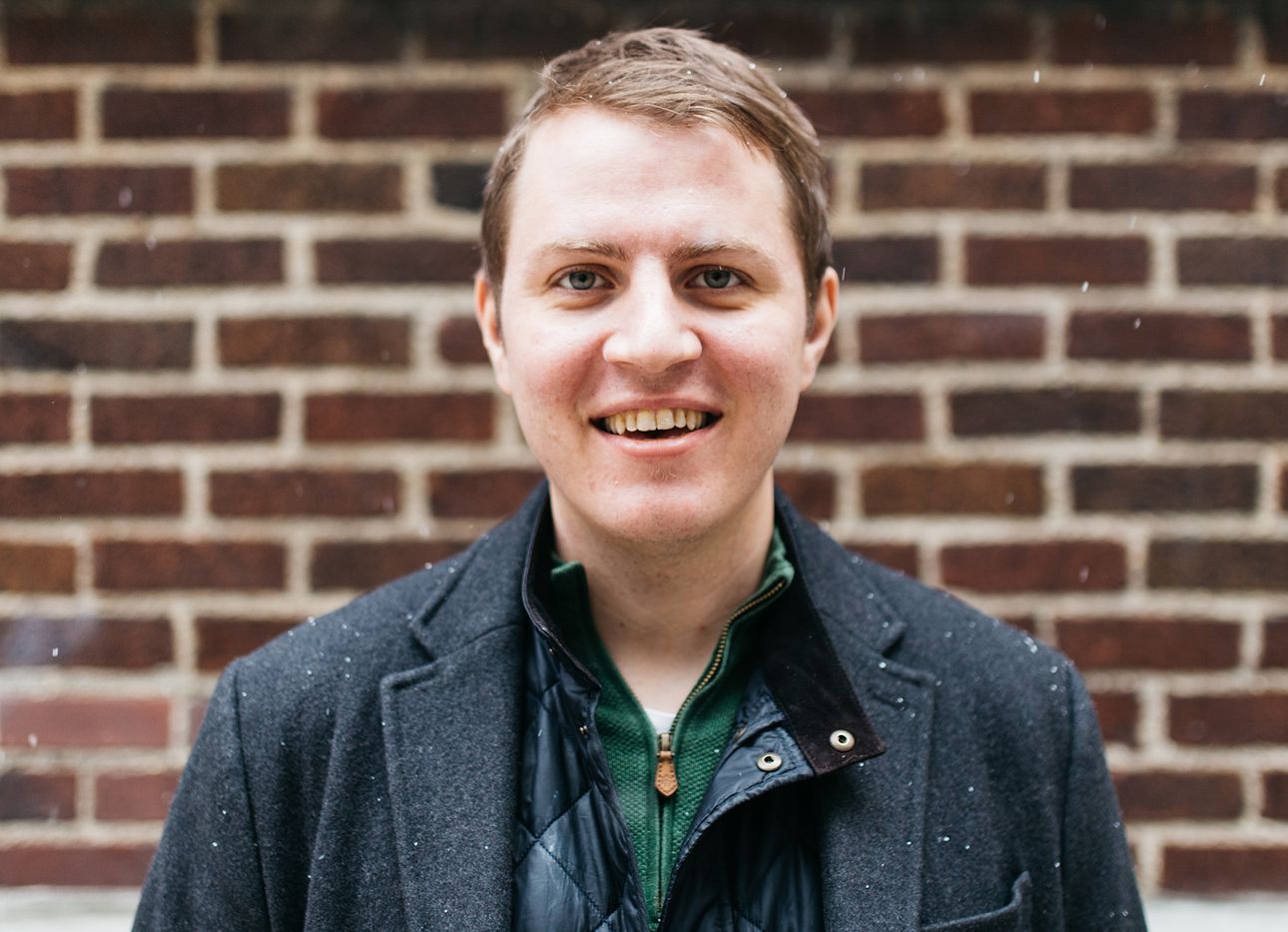
A Veteran Chef Fights Food Insecurity With His Nonprofit
After years in various kitchens, working his way up from dishwasher to cook, and ultimately chef de partie at Eleven Madison Park, Matt Jozwiak left the fine-dining world behind in 2017 to start Rethink Food NYC, a nonprofit organization that partners with restaurants and grocery stores to reduce excess food and make nutritious, low-cost meals available to the communities that need it most. The organization now counts one café, three roving food trucks, and a number of food-world entities—including Ghetto Gastro and Jozwiak’s former boss, chef Daniel Humm—as collaborators in its mission to fight food insecurity and foster a more sustainable, equitable food system.
How did you get into the food world?
I had trouble paying for college, so I started washing dishes in Kansas. I later moved to Chicago, and then to Europe, then back to Chicago, working at some great restaurants, and ended up in New York, where my last restaurant job was at Eleven Madison Park. Along the way, I’ve been really grateful for the opportunity and privilege of finding and getting that first dishwashing job and working my way up: I’ve always believed in that aspect of the restaurant industry. But I was also kind of frustrated with the way that restaurant workers were perceived, and the way that the industry was run, so I thought, If I ever got to a really high level, I could make a difference. But then I realized there needed to be a vehicle for change.
What led you to move into the nonprofit sector and start Rethink Food?
The biggest, most controversial issue at the time was food waste, which has gotten exponentially worse throughout my career. If there’s a myth that’s still going around, it’s that it’s illegal for restaurants to donate leftover food. So I thought, Let’s fix the most practical, obvious issue that we can tackle. We started picking up excess food and redistributing it to our neighborhoods.
At the end of a restaurant’s night, there might be roasted chicken left over—but what are you going to do with the six quarts of lemon juice and four gallons of celery-root trim or avocado mousse? And it’s not just high-end restaurants that have this problem, but all restaurants. It’s too much of a hodgepodge of random or specific ingredients for people to deal with. But what we found was that if you bring those random ingredients into one central location, you can create something pretty tasty. And you can make a lot of food.
In March, you opened Rethink Café, right as the Covid-19 closures were beginning in New York. How has it been to adapt to the pressures of the pandemic?
We already had the lease, so we were like, Let’s just open it. When Covid hit the city, we looked at the situation and asked ourselves, “What are going to be the issues?” Decentralized production is going to be a big thing, because you don’t want everybody cooking in one big space. And then distribution is a really hard thing, so we thought, Public distribution points are going to be our best friend.
I’ve never worked so hard in my life. There were days where I’d get off a call and be on the verge of tears, hearing all the awful shit happening, or people coming to ask for help on things that are out of my control. A lot of it came down to health and safety, negotiating with our staff, trying to get them to come in. I was running around looking for PPE supplies and ended up buying a bunch of painter’s suits—nobody had thought to buy painter’s suits. They were in stock, and had a mask built into them, so I bought every one I could find. Now, some months on, with the curve flattened here, I feel like we’re headed in the right direction. But I’m really worried [now that the] weekly $600 unemployment checks have run out.
The need for Rethink is even more urgent now, as the pandemic has exacerbated food insecurity issues among communities of need.
Food insecurity takes a lot of different forms, especially when we talk about systemic issues in neighborhoods and “food deserts” with a lack of access to fresh produce and groceries. Generally, people don’t like going to community centers to get their lunch. So they’ll go to a bodega or a fast food place like McDonald’s with a dollar menu of foods that are loaded with sodium. They’re basically designed to get you to buy a Coca-Cola, because it’s much easier and shelf-stable to sell a Coke than it is a hamburger. That contributes to obesity and all sorts of health issues.
For Rethink, our approach is: Let’s not try to change people. Let’s change what they buy. We have a low-cost lunch at the café for a suggested donation of $5, and we have three food trucks of meals that go around. It’s priced so that people are encouraged to try it out. So far, the reception has been great. It’s typically very hard to get feedback on social services, and people don’t like to complain about things that are free. But we encourage it, because it’ll shape the way we make food, and that’s the point. We want Rethink to be a place where people feel they can go in and give us a hard time if it’s not what they want. There’s actually this one person who calls me every Wednesday to ask what’s on the menu that week, and then calls me again to tell me how it was. Sometimes she loves it. Other times, she’ll be honest and say, “I don’t know about this…” [Laughs] Which is great. We love to get direct feedback from the community. It’s exactly what we need.